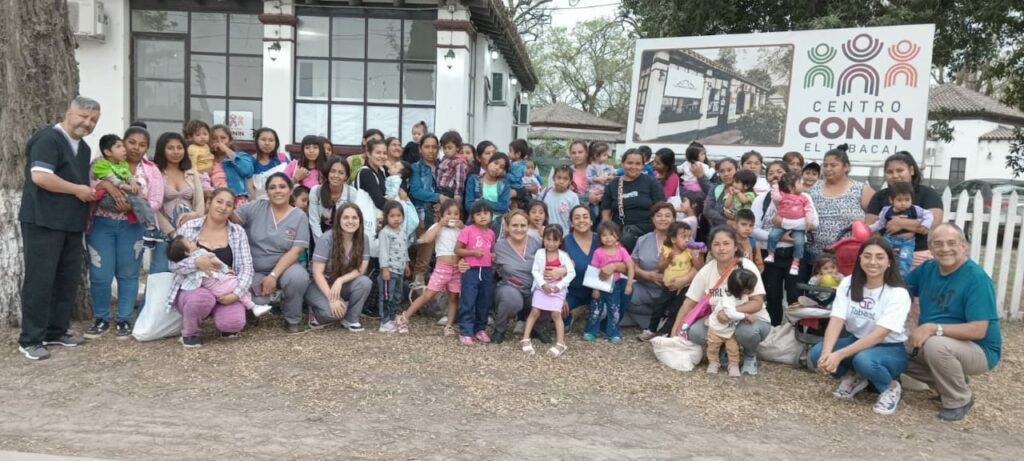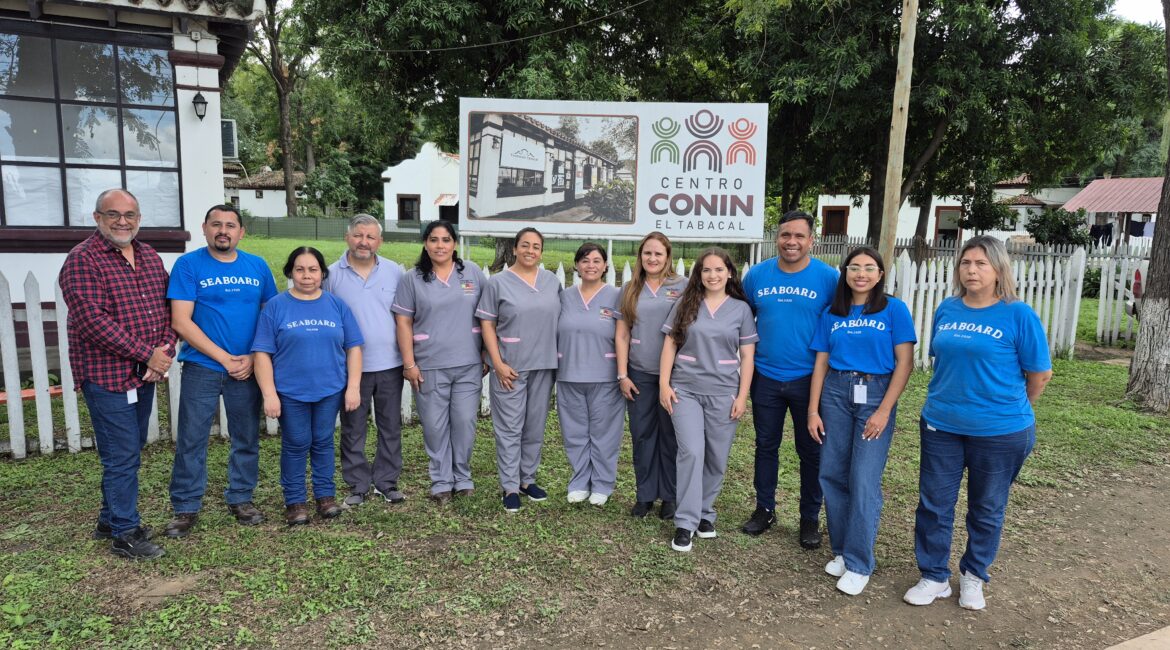By Seaboard Energía Renovables y Alimentos –
Child malnutrition is a multifactorial issue that results from a combination of health, social, economic, environmental, political, and cultural determinants. In the Northwest region of Argentina (NOA), cases of children with low weight and chronic malnutrition have been reported. According to the National Nutrition and Health Survey (ENNyS) 2019–2020, the prevalence of chronic malnutrition in children under five in the NOA is 7.4%, compared to 4.2% in the rest of the country, indicating malnutrition and infant mortality rates above the national average.
This problem is exacerbated by social factors such as poverty, environmental vulnerability, precarious housing conditions, neighborhoods without access to basic services, lack of nutrition education, family violence, and drug use. The situation is even more critical in the Chaco Salteño region, where Indigenous communities represent a highly vulnerable group due to their isolation from urban centers, which limits access to resources and essential services.
The CONIN–Tabacal Nutritional Prevention Center, created in 2013, is an initiative of Seaboard Energía Renovables y Alimentos SRL. Located within the company’s facilities in Orán, it forms part of the national CONIN Network of Centers. Developed under strict quality standards, it is the first center to operate under the CONIN methodology in the interior of the Province of Salta. Its mission is to help eradicate child malnutrition in the area by promoting proper nutrition and early stimulation in children, with a special emphasis on strengthening the mother–child bond, which plays a crucial role in a child’s development.
The program aims to improve the health and well-being of children aged 0 to 5, as well as mothers and pregnant women at risk of malnutrition in the city of Orán, Province of Salta.
The key components of this initiative can be summarized as follows:
Comprehensive Medical and Nutritional Care: The Center provides regular assessments of the nutritional status of children and mothers at risk of malnutrition. It also supplies food and nutritional supplements to address specific needs.
Education and Awareness: Educational workshops are conducted for mothers and the general community. These workshops promote healthy eating and early childhood stimulation, laying the foundation for healthy development.
Strengthening the Mother–Child Bond: This element is essential for a child’s well-being, as positive interactions between mother and child contribute to emotional and physical development.

The
financial and logistical support of Seaboard has been fundamental for the
effective implementation and management of the project, allowing it to meet its
objectives and generate significant impact in the community.
The
“CONIN–Tabacal Nutritional Prevention Center” initiative is also supported by
Seaboard’s Human Resources Department, which provides transportation—both vans
and ambulances—to facilitate the mobility of professionals and community
members participating in the program.
To enhance
our intervention capacity, we have established strategic partnerships with the
Ministry of Health and Social Development of the Nation, through the National
Secretariat for Children, Adolescents, and Family. This alliance has been
crucial to expanding the reach and impact of our project.
The impact
of the initiative has been significant and measurable. From its inception in
2013 to 2023, we have attended 635 children and 52 pregnant women, indirectly
benefiting 108,025 people. In 2023 alone, we assisted 30 children, 21 mothers,
and 1 pregnant woman. Furthermore, we discharged 360 children, of whom 150
achieved full nutritional recovery (RNC) and 210 partial nutritional recovery
(RNP).
These
numbers demonstrate the scope and effectiveness of our initiative. However,
beyond the data, the true impact can be seen in the transformed lives of the
children and families we have supported. Each child we assist represents a
brighter and healthier future.
In this
regard, the CONIN–Tabacal program makes a meaningful contribution to the
Sustainable Development Goals (SDGs) by addressing child malnutrition, a
critical issue in the NOA region. By providing medical and nutritional
assistance, education, and strengthening the mother–child bond, the program
aligns with SDG 2 (Zero Hunger), SDG 3 (Good Health and Well-being), and SDG 4
(Quality Education). Additionally, because we work with vulnerable communities,
the program also contributes to SDG 10 (Reduced Inequalities).
We are also
beginning to design co-financing programs with UNSA and UCASAL with the aim of
carrying out R&D&I on child malnutrition in the region, addressing the
problem more effectively and identifying sustainable solutions.

